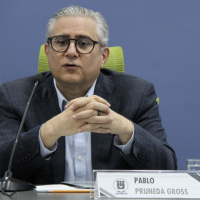While it is not a novelty, it is an unprecedented phenomenon.
This year, nearly half of the world’s population will vote in a national election. Globally, the role of technology in the electoral process, especially generative artificial intelligence (AI), and its astonishing ability to create texts, images, audio, and videos that could be considered genuine (deepfakes), has become increasingly impactful and fraught. To some observers, this rapid evolution presents the most formidable electoral challenge of our times.
But the bag is mixed. The technological revolution creates opportunities and platforms for entertainment, creativity, expression, and intense political debate to flourish. At the same time, it enables manipulation, falsification, and fraud in election results. Both these realities coexist, but they are not necessarily in equilibrium.
These concurrent realities intensify the political consequences of elections, especially where democracy is fragile to begin with. This is evidenced in the case of Mexico, which is in the midst of a highly contentious and polarizing election season, and which we will explore below.
DIMENSION: Mexico is facing the largest election in its history. It will elect the Presidency of the Republic, Senatorships and Federal Deputies, Governorships, the Head of Government of Mexico City, Local Congresses, Municipal Councils, and Mayoralties. In total, Mexican citizens will cast their votes for more than 19,000 positions.
However, except for some specific cases, so far, the campaigns have prevailed in traditional media, public squares, debates, and strategies on known and expected social networks. Thus, the election will be enormous and the run-up coverage is - if one can say so - orthodox.
INSTITUTIONAL WEAKNESS: The National Electoral Institute (INE), the body responsible for organizing the federal elections, is facing turbulent times.
The INE made possible the election that brought the current president, Andrés Manuel López Obrador (AMLO), to power. Despite this, AMLO has launched an offensive against it, cutting its budget and trying - so far unsuccessfully - to amend the Constitution to annul its autonomy and subjugate it to whims of the national government.
The Supreme Court (SCJN) – with significant popular support - prevented these attempts to dismantle the electoral authority through legislative reforms, declaring AMLO’s initiatives unconstitutional for violating the civil and political rights of citizens. Despite this, the administration’s harassment and disparaging of the INE continues.
To make matters worse, the current management of the Institute - headed by Guadalupe Taddei, appointed by lot due to a lack of consensus in the Chamber of Deputies – is poor. The electoral authority fails to convey institutional strength or cohesion in the face of the attacks launched at it. On the contrary, perceptions of internal conflict and lack of coordination among its members dominate public opinion. All this undermines the credibility of the INE as an electoral referee.
As if that were not enough, the electoral courts - federal and local - which are the other strategic components in the electoral institutional arrangement, are also weakened. Mere weeks before the election, the Senate of the Republic has neglected to appoint 44 electoral magistrates both locally and federally.
This lack of appointments is concerning because it affects a range of bodies responsible for overseeing elections, from the upper chamber of the Federal Electoral Tribunal - which is responsible for the qualification of the presidential election - to its regional and specialized chambers and many of the state tribunals.
The reason for this dereliction of duty? A lack of responsibility on the part of the senators of the Republic.
PRESIDENTIAL INTERFERENCE: Within this environment of institutional weakness, there is also the inherent inequity in this electoral process, due to the systematic interference of the President through his daily morning conferences for TV in which he attacks political opponents, the media, journalists, and any other person or entity who inconveniences him.
Beyond rhetoric, the other key to understanding the electoral landscape in Mexico is AMLO’s reliance on social programs to buy votes. Offering citizens millions of pesos through direct transfers is an unbeatable electoral strategy. At least, that's what the polls seem to say. Considering this, there is no need for Cambridge Analytica.
ORGANIZED CRIME: To top it all off, the criminal violence that plagues communities across Mexico threatens freedoms and imperils political candidates. The government does not want to acknowledge it, but this is the most violent election in the history of Mexico's fragile democracy. Without freedom, with violence and no peace, Mexican democracy languishes.
It is real violence, not virtual. Pure and hard violence.
Thus, contrary to what we could suppose at the beginning of this election, in the most heated and interesting context of the global technological transformation, when generative artificial intelligence evolves and transforms; the main threat to Mexican democracy is not deepfakes but the true facts of institutional incompetence, political irresponsibility, abuse of power, and physical violence.
Real truth.
Authors



Mexico Institute
The Mexico Institute seeks to improve understanding, communication, and cooperation between Mexico and the United States by promoting original research, encouraging public discussion, and proposing policy options for enhancing the bilateral relationship. A binational Advisory Board, chaired by Luis Téllez and Earl Anthony Wayne, oversees the work of the Mexico Institute. Read more

Explore More
Browse Insights & Analysis
Greenland’s New Governing Coalition Signals Consensus

The Future of France's Far-Right Party

Ukrainian Issue in Polish Elections

